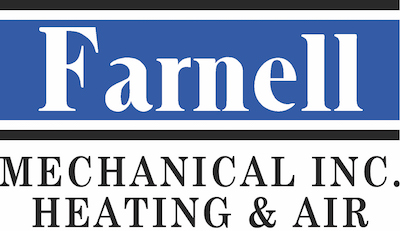
If you’re in the market for an air purifier, you might be noticing that some kinds are making many claims. And many of those claims may seem too good to be true. So, it’s only typical that you could be thinking are air purifiers a waste of money.
They’re worthwhile, according to the EPA, since they’re an excellent approach to improve your Auburn and Opelika house’s indoor air quality. Modern homes are tightly sealed and heavily insulated, which is excellent for energy efficiency, but not so fantastic for indoor air quality.
Since newer homes don’t typically allow in as much outdoor air as old residences, irritants like dust, pet dander and cleaning products can concentrate in your home. The outcome? Air that’s more contaminated than the outdoors, which is bad news if you are dealing with allergies, asthma or are vulnerable to respiratory irritation.
Our indoor air quality pros at Farnell Mechanical, Inc. can help you cut through the clutter and find the best home air purifier. Just give us a call at 334-524-2458 and we’ll be happy to provide support. In the meantime, learn more about how air purifiers clean the air, their perks and our advice to help you find the right air purifier.
How Does an Air Purification System Improve Indoor Air Quality?
Most home air purifiers have a fan to pull in air. Then, the air is pushed through one or more filters to trap irritants before being redistributed.
These filters can incorporate a charcoal filter, to get rid of odors, and a HEPA, or high efficiency particulate air, filter. A HEPA filter is at least 99.7% effective at catching miniscule particles as little as .3 microns, such as dust, pollen, mold and some bacteria.
An air purifier can be compact and used to purify a single area. Or they can be added to your HVAC system, giving effective filtration for your entire home.
The EPA says you should be aware that air purifiers can’t eliminate 100% of the contaminants from your residence’s air. But when used in tandem with an enhanced filter for your HVAC system, they can significantly decrease the concentration of indoor air pollution.
4 Advantages of Air Purification
Getting an air purifier for your residence can offer a lot of great health advantages. Here are just a couple of them.
1. Reduces Allergy and Asthma Triggers
Air purifiers reduce pollutants in your house, like some of these typical triggers:
- Dust
- Pollen
- Mold
- Volatile organic compounds, including cleaners, air fresheners and personal care products
2. Reduces Other Symptoms Linked to Poor Indoor Air Quality
Even if you or someone in your home doesn’t experience allergies or asthma, an air purifier can alleviate other symptoms related to low indoor air quality. These entail:
- Dry throat, eyes, nose or skin
- Headaches
- Sneezing and coughing
- Fatigue
- Dizziness
- Nausea
It can be hard to identify symptoms associated with indoor air quality, because they can be triggered by lots of other illnesses. However, if you’re aware that symptoms lessen after you leave your residence, your indoor air quality is probably causing the issue.
3. Gets Rid of Odors
Odors that hang around, including cigarette smoke or cooking smells, can be tricky to eliminate. If you having issues with eliminating strong smells in your house, we suggest purchasing an air purifier with a charcoal or activated carbon filter.
4. Might Decrease Your Chance of Being Sick
An air purifier can remove some bacteria and viruses under certain airflow conditions, keeping you and your household in good health especially during cold months. To receive total advantage of this benefit, our professionals suggest a UV air purifier. Disinfecting ultraviolet light delivers an extra layer of protection against airborne pathogens.
Air Purification Systems to Skip
You’re better off without some air purifiers. Here are several features to stay away from when selecting a system for your house:
- Makes ozone. Some air purifiers produce ozone, which can bother your lungs. The EPA advises avoiding ozone air purifiers.
- Doesn’t use HEPA filters. For the best filtration, you’ll want a HEPA air purifier. Regarded as the gold standard for healthy air, HEPA filters are used in the majority of healthcare settings, including hospitals.
- Only purifies one room. We suggest getting a whole-house air purifier, which purifies the air throughout your home. This option works in tandem with your HVAC system.
When you partner with the indoor air quality professionals at Farnell Mechanical, Inc., we make it uncomplicated to select the best air purifier for your home. Give us a call at 334-524-2458 to start breathing cleaner air today!
